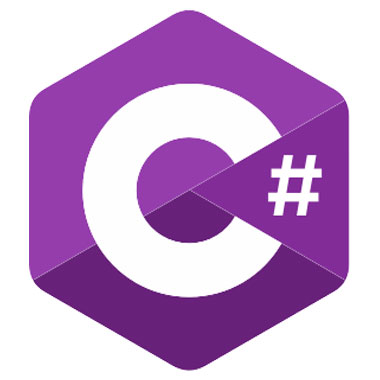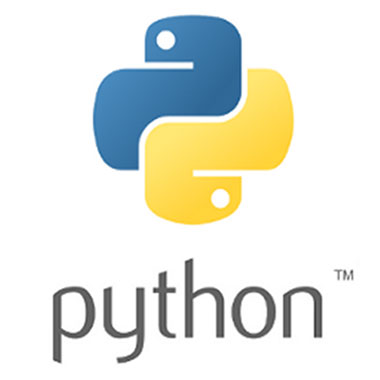Top Programming Languages Employers Look Out For
Top Programming Languages Employers Look Out For

With thousands of programming languages to choose from and a booming ICT industry in Singapore, which ones should you be learning to further your career?
We’ve compiled a list of the most in-demand programming languages to help you make the right choice. Rather than learning just one of them, aim for three or more to enhance your versatility and really stand out from the crowd.
Java
Industry Focus: Finance, Healthcare, Enterprise
Java is worthy of a first mention as it not only underpins sites like Amazon and LinkedIn, but it is also the most popular programming language in the world building everything from server-side applications to video games and Android apps.
There are several versions of Java though including SE (Standard Edition) and EE (Enterprise Edition). If you are new to Java, SE is a great place to start. However, if you want to work with companies requiring large scale, distributed systems, go for Java EE.
Courses:
- NICF – Oracle Certified Professional, Java SE Programmer
- NICF – Front-end Web Application Development with Java EE
PHP

Industry Focus: Web Development
Providing the building blocks to some of the world’s biggest sites such as Facebook and Wikipedia, PHP is a free and open source server-side programming language that meets the needs of both beginners and experienced users.
PHP is incredibly useful to have in your toolkit as it runs on many platforms and is used by over 80% of websites. The key to fully leveraging its power however, lies in combining it with other languages such as JavaScript, SQL and HTML.
Courses:
Swift
Industry Focus: iOS Development
If you love Apple products and want to write for iOS, then learn Apple’s new programming language, Swift.
Since launching in 2014, Swift has grown in popularity due to its speed and scalability coupled with an increase in demand for mobile apps. Used by San Francisco-based rideshare company Lyft, it’s simple to learn and viewed by many in the industry as “trendy” – two factors that are attractive to an entry-level developer.
Courses:
Android Programming
Industry Focus: App Development
There’s no doubt however that Android is leading the operating system wars and according to GlobalStats, it is currently enjoying a market share of around 58% in Singapore, 82% in Malaysia and 85% in Indonesia.
The dilemma with programming for Android is deciding upon which language to learn. While Java has traditionally been the go-to language for Android development, the recently released “Kotlin” has been predicted to take the top spot in the future.
Courses:

GO

Industry Focus: Networking, Web Servers and Automation
Free, open source and built by Google, Go is used by large companies like Adobe and Facebook, and won Tiobe Index’ Programming Language of the Year 2016 award.
It isn’t uncommon to find high salaries associated with Go and according to Kevin Troy, Director of Developer Insights at Stack Overflow, a big reason for this is the rising importance of cloud and big data.
HTML5
Industry Focus: Web Development, Finance
While HTML5 is a scripting rather than a programming language, it’s a must for any web developer. Aside from enabling you to build rich web-based apps that can run on any device through a regular web browser, learning HTML5 will give you an edge in the financial sector.
Comparing the number of Singapore-based vacancies in the financial sector to the number of local IT candidates across six key programming languages, efinancialcareers found HTML5 to be the most desirable programming skill to possess given that supply has been slow to meet demand.
Courses:
C#
Industry Focus: Microsoft Programming
C# is an object-oriented programming language used to build a variety of secure and robust applications on the .NET Framework. Developed by Microsoft and used by companies like GoDaddy and Intel, it’s (not surprisingly) a must for developing Microsoft enterprise software and apps for the Windows phone operating systems.
Also part of the .NET framework, ASP.NET is an open source framework used to create simple, fast and highly scalable web apps and services. It also happens to be the second most used programming language in Singapore at 20%. ASP.NET may be of particular use in the future as it can help organisations leverage upon the trends towards IoT and big data.
Courses:

C++
Industry Focus: Games Development
A powerful and high-performance language, C++ is used to build system software, desktop and web apps, and games.
Opportunities look particularly bright in the game development scene as it is Singapore’s fastest-growing media sub-sector. It should be kept in mind though that C++ is a little more difficult to learn and will take a sound understanding of programming knowledge to master.
Python

Industry Focus: Finance
Used by companies like Instagram, YouTube and even NASA, Python is an open source programming language that is loved for its emphasis on code readability.
Python has become increasingly popular amongst data scientists and the banking sector as according to Paul Bennie, Managing Director of financial technology headhunters, Bennie MacLean, the supply of talent has not kept pace with demand.
That brings us to the end of our list of most in-demand programming languages! While it is by no means exhaustive, it provides a great foundation to thrive in Singapore’s burgeoning IT industry. If you’d like to learn how SkillsFuture Credit can help you offset your course fees, click here.
Reach out to our Skills Consultants to find out more about how you can transform your life through learning today!
You might like this
10 Reasons Why You Should Consider Being a Certified Information Systems Security Professional (CISSP)
10 Reasons Why You Should Consider Being a Certified Information Systems Security Professional (CISSP)
Upskilling for a new career post-retirement
Learning Never Stops: Reskilling for a Career Switch

